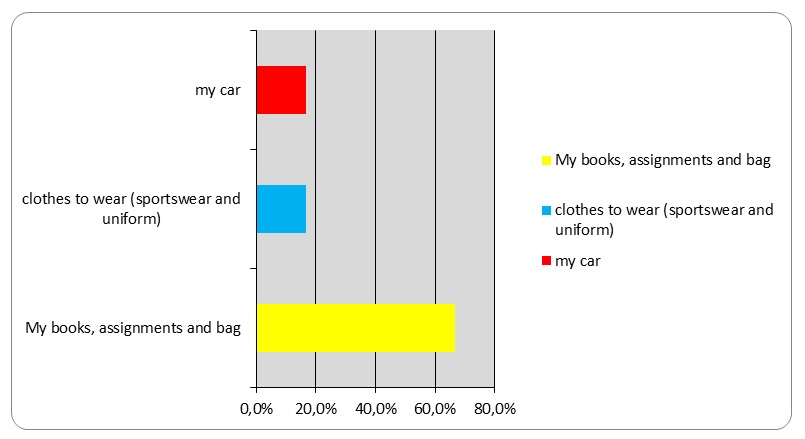The researcher engaged 30 participants in an attempt to determine the impact of time management on academic performance of students in Flinders University. Additionally, a peripheral objective for the researcher was to demonstrate how interpersonal social relationships affected time management and academic achievement of students. The results are as follows.
Socio-Demographic Characteristics
A third of the participants (33.3%) were aged between 23 and 27 years, with a similar number falling under the 28-31 and 32-35 age categories. Two-thirds of the participants (66.7%) were male and the rest of the distribution comprised females. All participants selected for the study were married and were doing their undergraduate studies at Flinders University.
Main Findings of the Study
The researcher used a 5-point Likert-type scale to rank various responses from students that were critical in not only demonstrating how time management affects academic performance, but also how social interactions influence time management and, consequently, academic achievement. The findings included in the table next page show the mean and median values of the scores (1=strongly agree; 5=strongly disagree), as well as their respective measures of dispersion (standard deviation and interquartile range).
Table 1: Selected Descriptive Statistics on Time Management & Academic Achievement.
The tests for normality show that the scores are not normally distributed because the significance for each variable is less than 0.005. If the standard deviation is used, however, we can argue that the data for the variables with a standard deviation of less than 1 are normally distributed. As such, it can be argued that the results with a low measure of dispersion are representative of the population. Consequently, the findings demonstrate that most students strongly agree that 1) lack of proper time management principles among students hinder them from accomplishing the things they want to do, and 2) organizing their activities and allocating adequate time in each activity help them to finish their academic endeavours on time. Additionally, it is important to point out that all students strongly agree that: 1) their performance in school is greatly affected by how they set their time for study and completing school assignments/projects, and 2) studying their lessons a week before the examinations help them to achieve a higher grade. These observations prove the hypothesis that proper time management leads to high academic performance among students.
The descriptive statistics in Table 1 also demonstrate that although students know that proper time management leads to improved academic performance, they rarely take the initiative to adopt strategies that would lead to effective and efficient time management. Going by the median figures and the interquartile ranges for some selected variables, it is clear that many students do not 1) plan earlier for activities of the next day, 2) keep track of time in everything that they do, 3) usually plan ahead of time, and 4) prepare a list of things they need to do in a day. These findings are very important as they can be used by students to improve on time management. The school administration could also use them to devise policy directions for students.
In social interactions, it is imperative to note that all students noted that having functional and effective interpersonal relationships is good for their academic achievement. All students also noted that these relationships influence their behaviour and hence their time management effectiveness. Indeed, 20(66.7%) of the participants either strongly agreed or agreed that social friends and companions usually influenced their study habits. All participants felt that their friends and families formed a core constituent of their learning and well-being. Again, these findings have important ramifications for students, especially in adopting strategies aimed at streamlining their philosophy in time management.
Only a third of the Students (33.3%) agreed they were time conscious, though two-thirds felt that it is always important to list the things they want to study/do in a particular day if they are to achieve high scores in the examinations. When asked what things they usually prepared before going to school, the participants responded as follows:

The figure above shows that students are knowledgeable on the fact that prior preparation of academic and reading resources ultimately affects their academic achievement in school. This further proves the hypothesis that proper time management leads to higher academic performance among students.
